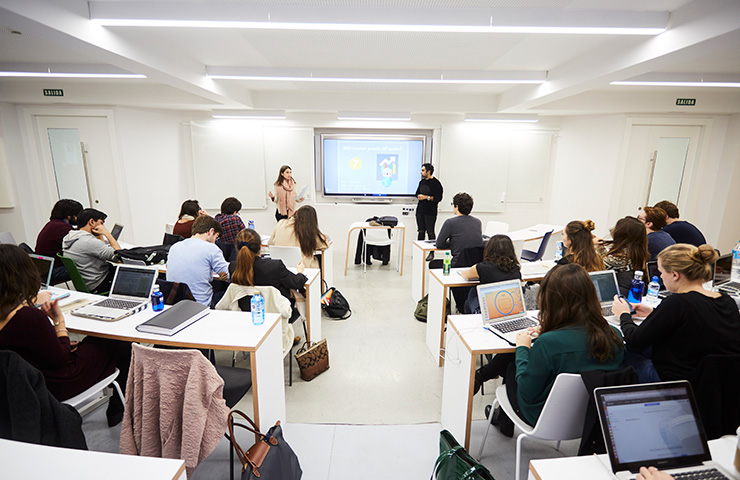09/06/2023
The labor market is changing. And, thanks to emerging trends like AI, machine learning and data analytics, the nature of business itself is also changing—and faster than ever before. For a successful career in any area of economics, consultancy or indeed the corporate world, graduates need the new, strategic skills and practical experience that are being sought by top employers.
Our Master in Applied Economics has been carefully curated to provide the most up-to-date technical tools for global market analysis, and for understanding the complex economic challenges the world faces today. Through a mixture of research, quantitative analysis and hands-on practice, the program provides precisely what the top companies in the sector are looking for when seeking new talent. With specialist elective tracks offering a sharper focus on what most interests each student, it’s a program designed to kick-start your career and open the doors you want to step through as you launch your professional journey.
Transferable skills to increase your options
Theory alone is not enough to impart the qualities you’ll need to maximize your employability and stand out from the competition in the sector. To truly open up a wealth of opportunities, it’s true that you need a strong foundation in economics, a deep understanding of data analytics and a mastery of emerging solutions such as machine learning.
But you’ll also need to put those skills into practice at the hands of expert practitioners, so that you’ll be confident in the practical application of modeling and forecasting tools, for example.

The transferable skills that come as part of the package in the Master in Applied Economics—skills like analytical thinking and a strategic mindset—are what will set you apart. Gain those skills, and an international career in the field could see you finding success in the private or public sectors, in anything from a government or international institution to a corporate giant or tech specialist.
An applied approach to economic solutions
As an official master’s degree which enables access to doctoral programs later, the Master in Applied Economics is very much focused on an applied approach to economic solutions.

Having an undergraduate degree with a high GPA or a strong record in economics, statistics and mathematics is important.
Andra Cioara, a senior manager at IE University with extensive experience in education in the finance, economics and trade sector, describes the ten-month program as “a fast-track to the next professional step.”
The Master in Applied Economics follows IE University’s comprehensive learning methodology that combines individual studying with teamwork, simulations, projects, presentations, quizzes and dynamic class participation. Besides the micro- and macroeconomics classes, students have access to programming in different languages, game theory, statistics and econometrics, she explains.
It’s a comprehensive, hands-on and highly practical approach, with experts imparting their knowledge and experience from different areas and associate professors who are practitioners in the profession and are working at the same time as teaching. With academic professors bringing long teaching experience into the mix, it’s a balanced learning experience that combines rigorous theory with unmatched access to the industry.
A gateway to firsthand interaction with the top of the industry
One critical feature of the program is the Immersion Week experience, where students of the program visit leading companies and institutions in the industry to see the sector’s daily realities for themselves and do some international networking.
Previous cohorts have visited major players including UNESCO, the World Bank, the International Monetary Fund, the European Banking Authority and the Luxembourg Stock Exchange, among others.
The broad range of organizations that our students have visited reflects the variety of possibilities for professional paths that the program opens to them.

Graduates of the program, says Andra, “Develop specialized skills and capabilities applicable to socially conscious professionals, ambitious corporate leaders and competitive consulting positions. Some of the roles our graduates could tap into upon graduation are strategic consultant, corporate economist, data analyst, business analyst, financial analyst, labor economist, audit specialist, policy maker and many others.”
Does this sound like you?
Andra describes ideal Master in Applied Economics candidates as intrinsically motivated people who are “curious, rigorous, have a flair for numbers and want to solve complex problems in practically any industry.” Given the soft skills including critical thinking, public speaking, project management and leadership that also feature on the curriculum, this really is the best opportunity to lay the foundations for an outstanding career in economic policy, consultancy or the corporate world. Wherever you see your career path leading, you’ll open doors with the Master in Applied Economics.








